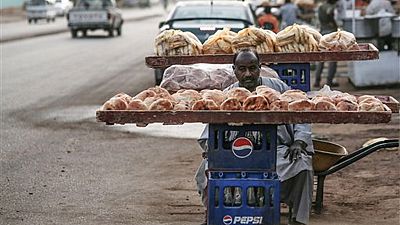Sudan
Sudan’s annual inflation rate reached 64.3% in January, from 57.1% in December 2019, due to rising food and drink prices, the state statistics agency disclosed on Thursday.
Inflation soared in recent years, driven by food, beverages and a black market for U.S. dollars. Shortages of bread and fuel, both subsidized by the government, coupled with hefty price rises sparked protests that led to the ouster of then President Omar al-Bashir in April 2019.
The country’s transitional authorities face the toughest task of turning around an economy wrecked by three decades of mismanagement under the former president.
Sudan’s economy was hit hard when the south of the country seceded in 2011, costing it three-quarters of its oil output, a crucial source of foreign currency.
AGENCIES







![DRC-US mineral pact offers optimism—and inherent hurdles [Business Africa]](https://images.euronews.com/articles/stories/09/58/59/54/320x180_cmsv2_c6315012-f640-5240-8a73-2059ae64d5b8-9585954.jpg)






01:00
Christmas lights attract Lagos residents despite violence and rising costs
01:01
Sudan's transitional leader al-Burhan holds talks with Saudi Crown Prince in Riyadh
02:19
Researchers find evidence of youngest-ever children tattooed
00:49
Eritrea announces departure from IGAD regional bloc
01:14
UK sanctions four senior RSF commanders over atrocities in Sudan
02:01
Sudan: RSF capture of Heglig threatens South Sudan's oil exports